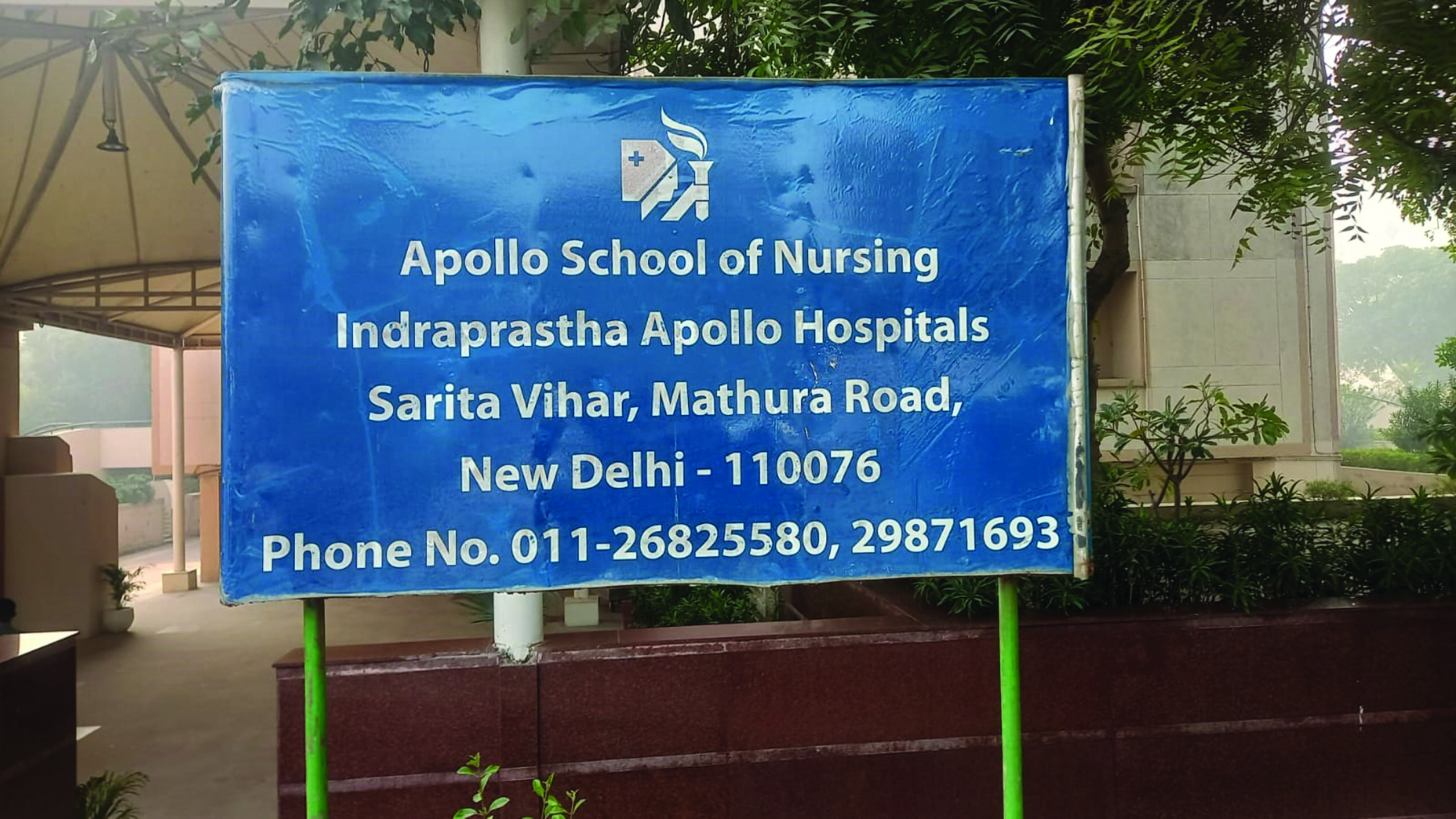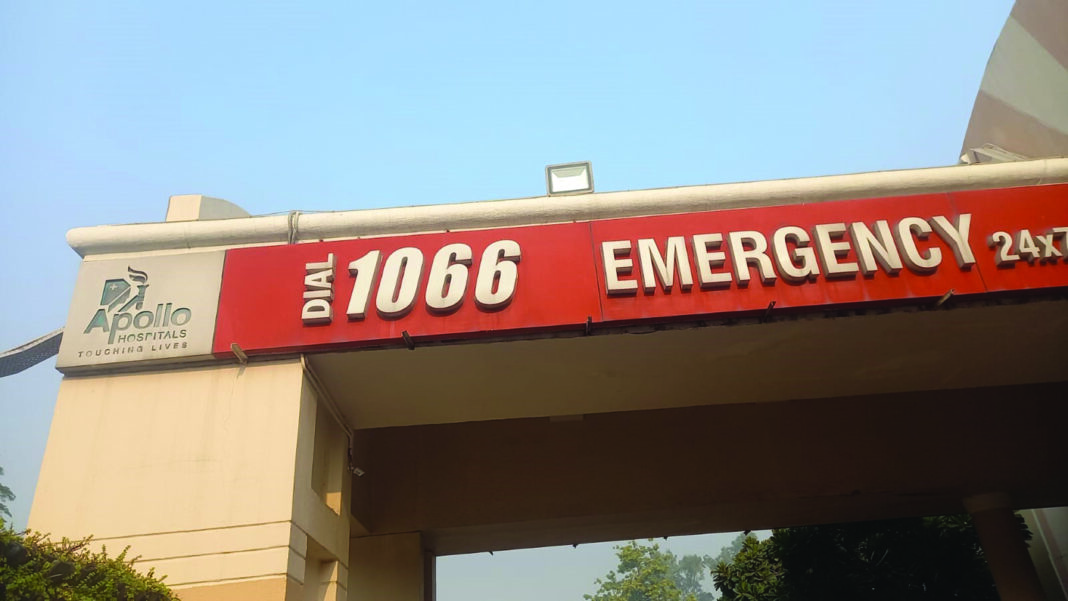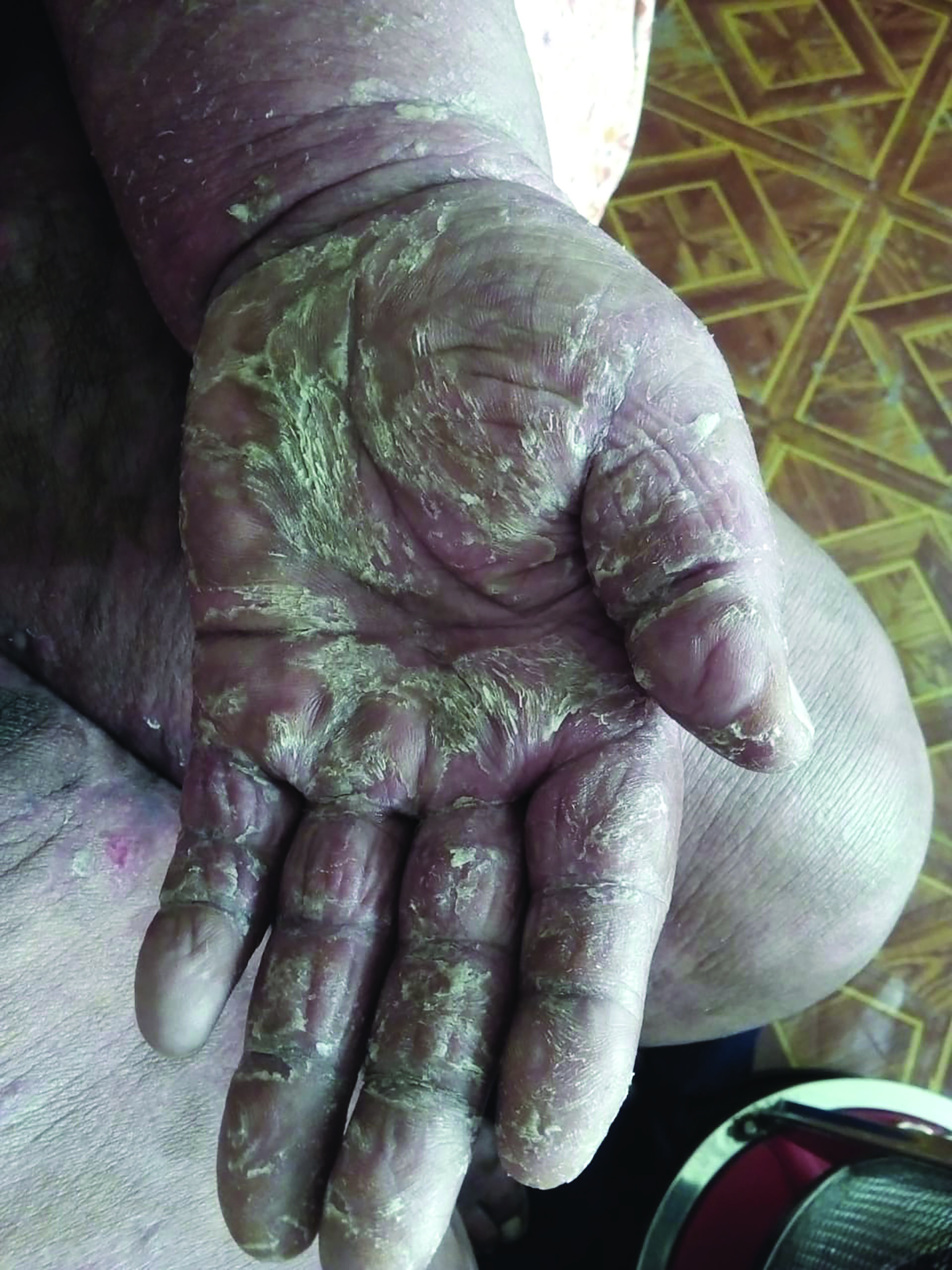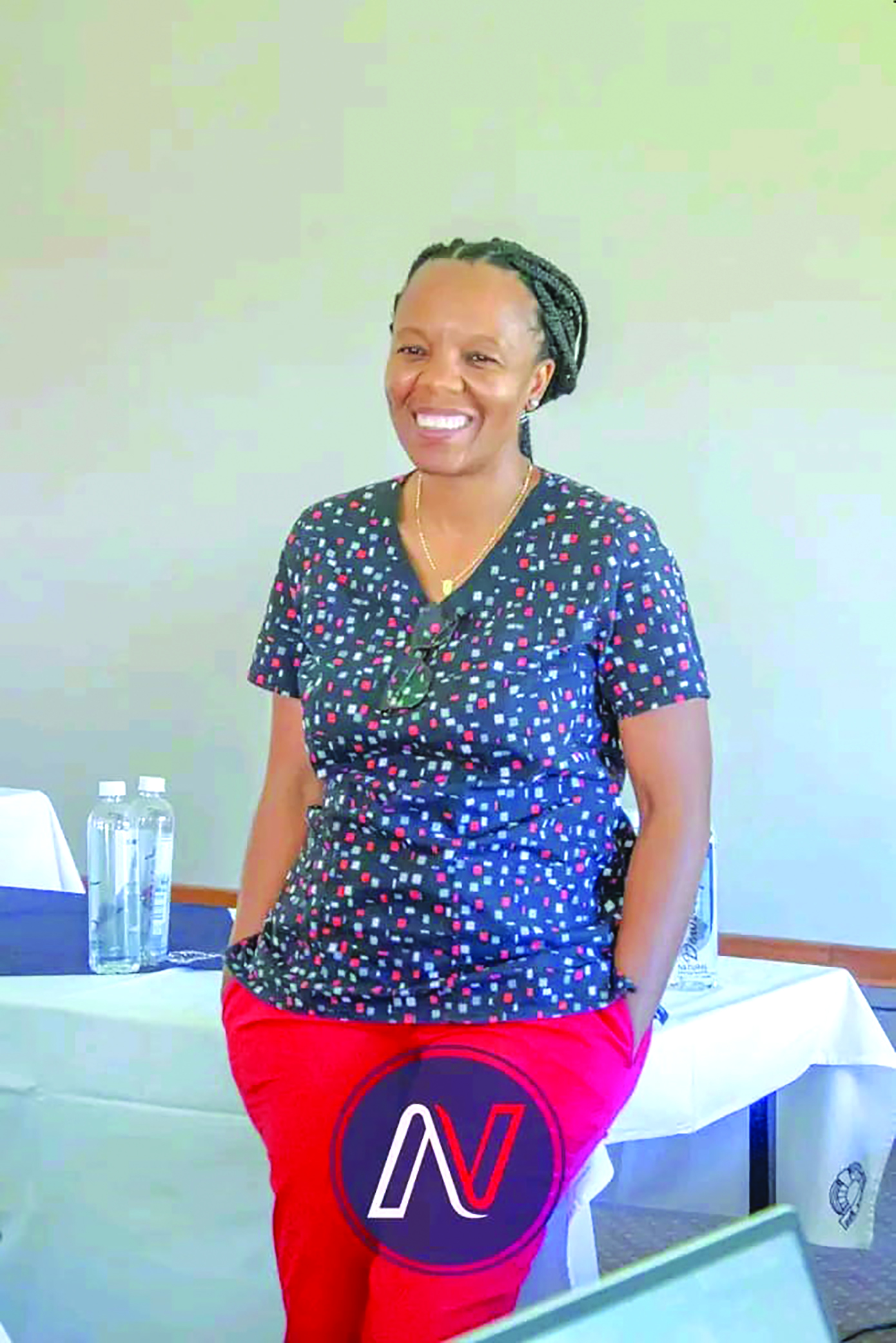…PS health shun the ban saying they last referred a patient in 2022
India’s prestigious Apollo Hospital has officially banned Basotho patients from accessing its services due to the Lesotho government’s failure to settle medical bills totalling millions of Maloti over the past two years.
This development exposes the cracks in Lesotho’s healthcare system, highlight its reliance on foreign medical facilities and the mounting pressure of an escalating cancer burden.
The partnership between Lesotho and Apollo Hospital dates back to 2015 when agreements were established to provide advanced treatments for Basotho patients, particularly in oncology.
The collaboration included patient referrals and medical training for professionals, cementing a mutual relationship that promised improved healthcare outcomes for Lesotho.
However, this relationship began to unravel after the most recent Memorandum of Understanding (MOU), signed in September 2022, failed to be honoured.
Sources within the Lesotho Ministry of Foreign Affairs revealed that the current government has refused to engage Apollo Hospital to discuss the unpaid debts or renew the agreements.
“The government’s stance is that the MOU signed by former Minister Sekatle and Apollo’s Dr. Harinder Singh Sidhu lacked cabinet approval, rendering it invalid,” said a senior official.
Consequently, efforts to rekindle discussions have been stymied, leaving patients without access to Apollo’s advanced medical care.
In 2023, a senior official revealed that a young child in dire need of a liver transplant was denied treatment at Apollo.

“The child’s case became a bureaucratic nightmare, with the government ministries and the embassy in India at odds over who should bear the costs because the hospital demanded upfront payment for the treatment required. Eventually, the embassy paid upfront with a promise of reimbursement, a promise yet to be fulfilled. This incident underscores the government’s inability to navigate life-saving healthcare needs effectively,” the source said.
Apollo’s blacklist of Lesotho stems from more than just unpaid medical bills.
According to an official at the Confederation of Indian Industry (CII), Lesotho has accumulated grievances with multiple suppliers, tarnishing its reputation globally.
“It is not just Apollo that has stopped doing business with the country. They have a reputation of not paying suppliers and as an organisation, we have also placed it on the red. With our role of looking for opportunities for the country’s business community, Lesotho and Some SADC countries I cannot mention have serious problems of corruption and incompetency, so they have been placed on the blacklist and any Indian company that does business with it is at their own risk,” the official revealed.
Lesotho has spent approximately M130 million ($7 million annually) to send patients to South Africa and India for treatments in the previous years, with Apollo offering significantly lower costs compared to South African hospitals.
The health ministry had previously revealed that a patient’s treatment in South Africa costs between M300 000 to M500 000 while each patient was charged between M70 000 to M100 000 at Apollo Hospital.
Despite this, the government’s unwillingness to resolve the financial dispute with Apollo now means even higher costs for referrals to South Africa, exacerbating the strain on an already overburdened health budget.
The MOU between Lesotho Apollo was predominantly around cancer treatment with special cases of illnesses that require technology not available in Lesotho.
Since the existence of the MOU over 100 Basotho Cancer patients have been treated in Apollo.
‘Maneo Moliehi Ntene, Principal Secretary (PS) for the Ministry of Health, shunned the allegations of medical debt saying the hospital needs to contact the ministry.
“I have no information of a pending debt with Apollo nor the fact that we have patients who are banned.
“We haven’t referred any patient to Apollo since 2022 because we simply can’t afford their referrals. We are still battling with a huge medical bill from South Africa, we are trying by all means to save costs,” Ntene said.
She explained that the liver patient was not a government’s referral, however, the government ended up being involved because the patient was in a foreign land.
Cancer remains a leading cause of death in Lesotho.
According to the Global Cancer Observatory (2022), the country recorded 2,027 new cancer cases and 1,411 deaths.
Cervical cancer alone accounts for nearly 30 percent of these cases, with an incidence rate of 56.8 per 100,000 women. The lack of comprehensive cancer care within Lesotho’s borders has forced thousands to seek treatment abroad.
While the Senkatana Oncology Clinic, which opened in 2022 with support from the Bristol-Myers Squibb Foundation, provides chemotherapy services, it is ill-equipped to handle the rising cancer burden, and with Apollo’s ban, the situation becomes even direr, leaving Basotho patients with fewer options and longer waiting periods in South Africa.
Dr. Harinder Singh Sidhu, Apollo’s Vice-President for Corporate Development, expressed disappointment over the breakdown in relations but emphasised the hospital’s willingness to resolve the matter.
“We have attempted numerous times to engage Lesotho’s new government, but the lack of response has left us no choice but to halt services. Our doors remain open for dialogue,” he said.
Despite these overtures, the Lesotho government has shown little urgency to revive the partnership. The Minister of Foreign Affairs, Lejone Mpotjoane, deflected responsibility, citing procedural constraints.
Mpotjoane stressed that his ministry’s role was to link ministries with the world but is never part of implementations, directing this paper to the ministry of health
“I may have details of whether there is a debt of how much, but I am not at liberty to speak and provide thorough details. The minister of health is better suited to answer all these questions, more so because the MOU between Lesotho and Apollo is with the ministry,” Mpotjoane said.
Deputy Ambassador to India, Thabang Kholumo, on the other hand, confirmed that Apollo now demands upfront payments for Basotho patients, effectively barring access for those who cannot afford the costs.
Lesotho’s reliance on South Africa for healthcare has created additional strain on the latter’s medical system.
Thousands of Basotho patients continue to flood South African hospitals annually, adding to the pressure on their infrastructure and resources. Without access to Apollo, the demand on South African facilities is set to increase, further complicating the region’s healthcare dynamics.
Last week, however, marked a historic moment for the country as the construction site for Lesotho’s first-ever cancer centre was officially handed over. The ground-breaking ceremony, held on Wednesday, was attended by government officials, healthcare professionals, and members of the public.
Speaking at the event, ‘Maneo Moliehi Ntene, Principal Secretary (PS) for the Ministry of Health, highlighted the financial strain caused by referring cancer patients to South Africa citing… “Our country’s funds are being eroded to South Africa through cancer treatment for Basotho,” Ntene said.
“South African hospitals are even proud to state that Lesotho plays a key role in helping them reach their monetary targets, thanks to the payments made by the Lesotho government for cancer patients referred there.”
She indicated that in 2015, Lesotho paid at least M145, 000 for the treatment of one cancer patient.
By 2023, this figure had risen to M220, 000.
“Due to the burden of appointments for treatment in South Africa, some of this money was paid for patients who had already passed on before they could attend their scheduled treatments,” Ntene noted, underlining the urgent need for a local cancer treatment facility.
The tender for the construction of the centre has been awarded to a joint venture between Plem Construction and G.L Civils and Construction.
Dr. Kabelo Mputsoe, Clinical and Radiation Oncologist, expressed gratitude on behalf of cancer patients, calling the new centre a significant breakthrough in the country’s healthcare system.
“Once the centre is completed, patients will be treated in their own country by people who better understand them,” Mputsoe said.
She acknowledged that current facilities, such as the Senkatana Oncology Clinic, are inadequate for cancer treatment.
“We are currently using buildings that are not suited for cancer treatment, and it has been an ongoing struggle for years,” she explained.
The idea of establishing a cancer centre in Lesotho dates back to 2012, and while progress has been slow, the centre’s realisation represents a long-awaited milestone. Mputsoe also shared alarming statistics: 625 cancer cases were reported in 2023, with 750 new cases already recorded in 2024. “All types of cancers are found in Lesotho, but the most prevalent are cervical cancer, breast cancer, and prostate cancer,” she said.
Experts have suggested that Lesotho’s healthcare crisis requires immediate intervention with a need to prioritise domestic capacity-building to reduce dependency on foreign medical institutions.
This includes expanding oncology services, training specialists, and ensuring sustainable financing for healthcare.
Failure to address these systemic issues means, experts note, that Basotho patients will be left with dwindling options and worsening health outcomes.
As the Apollo ban highlights the fragility of Lesotho’s health system, it serves as a wake-up call for policymakers to act decisively. The stakes are high, and the lives of countless Basotho depend on urgent reforms to secure a healthier future for the nation.
Summary
- In 2023, a senior official revealed that a young child in dire need of a liver transplant was denied treatment at Apollo.
- “The child’s case became a bureaucratic nightmare, with the government ministries and the embassy in India at odds over who should bear the costs because the hospital demanded upfront payment for the treatment required.
- With our role of looking for opportunities for the country’s business community, Lesotho and Some SADC countries I cannot mention have serious problems of corruption and incompetency, so they have been placed on the blacklist and any Indian company that does business with it is at their own risk,” the official revealed.

Co-Owner and Managing Editor of Newsday Media Lesotho. PEPFAR Media champion, Award wining features journalist, an Investigative journalist, REPSSI CAB member. Maseru, Lesotho Joined November 2009.










